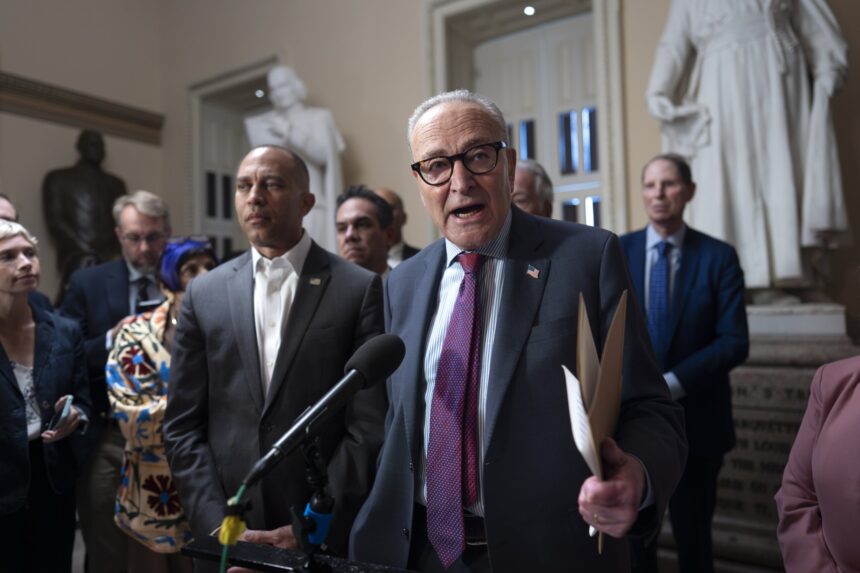In Washington, a critical debate is unfolding over the future of tax credits that significantly reduce health insurance costs for millions of Americans, a measure that arose during the COVID-19 pandemic. These subsidies, originally implemented in 2021 and later extended, are scheduled to expire at the end of the year, leaving lawmakers in a race against time to reach a consensus amidst contrasting political ideologies.
Bipartisan concern over the consequences of letting these subsidies lapse is palpable, as many Republicans begin to reconsider their long-standing opposition to the Affordable Care Act (ACA). Recognizing that significant premium increases could burden their constituents, some GOP members are signaling willingness to support the tax credits’ extension. Yet, the party remains fragmented, with many members still staunchly against the ACA, creating barriers to a unified solution.
On the Democratic side, unity is apparent, with leaders like Senate Democratic Leader Chuck Schumer emphasizing the dire ramifications for millions if Congress fails to act. Schumer warned that without intervention, many Americans would soon receive notices of imminent and steep premium hikes—an alarming prospect for households already navigating tight budgets.
Health insurance enrollment has surged under the ACA, reaching 24 million people, thanks largely to these broadened tax credits. The subsidies have enabled lower-income consumers to access plans with little to no premiums, while capping costs for those with higher incomes. However, as the expiration date approaches, insurers are beginning to inform their clients about possible premium spikes of up to 50% in various states, increasing urgency among lawmakers.
The financial strain on both consumers and healthcare providers is compounded by looming Medicaid cuts, which many experts predict will further challenge stakeholders within the healthcare industry. Both insurance companies and hospital executives are voicing concerns about the detrimental impact of premium increases on their financial viability.
While Democrats are pushing for an immediate extension of the subsidies, Republican leaders are juggling calls from different factions within their ranks. Some are advocating for a rework of the credits, potentially leading to protracted negotiations and further complicating the legislative process. With a government shutdown looming at the month’s end, the issue has become entwined with broader funding discussions, with Democrats pledging not to support funding bills that do not include health care provisions.
Efforts are underway among some House Republicans in competitive districts to propose a limited extension of the tax credits amid fears of political backlash if the subsidies are allowed to expire. However, key Republican leaders in both Houses are wary of committing to an extension, often citing the need for further examination of the subsidies before any decision is made.
As the midterm elections draw closer, the scramble to address these tax credits highlights the complexities of healthcare reform in a divided Congress. Stakeholders across the political spectrum understand that failure to protect these vital subsidies could lead to substantial economic hardship for millions, as well as significant political repercussions for those in power. The clock is ticking as open enrollment approaches on November 1, prompting a renewed sense of urgency among lawmakers to resolve this escalating issue.







